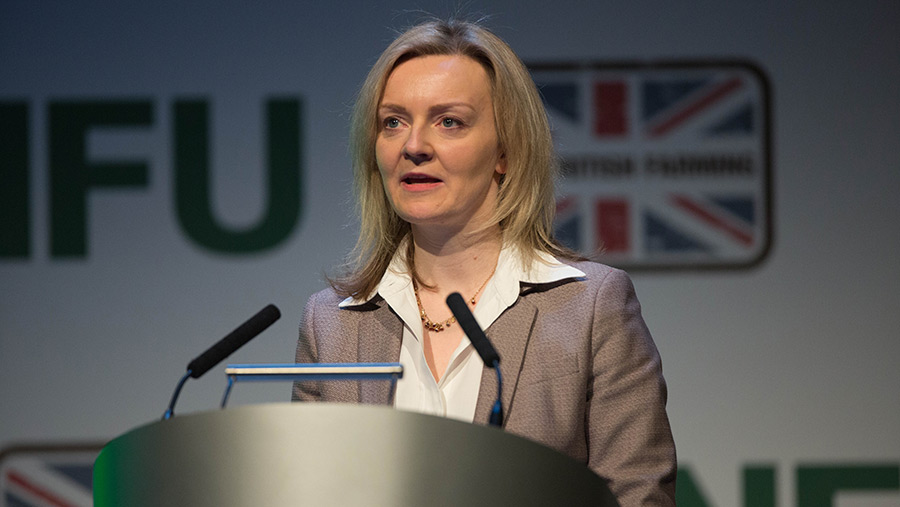Editor’s view: New PM must save economy to preserve farming
 Liz Truss at NFU conference when she was Defra secretary © Tim Scrivener
Liz Truss at NFU conference when she was Defra secretary © Tim Scrivener The non-stop stories in the past weeks about the impending pain of energy price hikes would have had a desensitising effect by now were they not so serious.
At one point this week, gas prices jumped by another 10%. That single spike alone was roughly equal to the total pre-crisis price of gas.
Here is the problem: It seems close to inevitable that a spending package similar in size to Covid bailouts will be needed to cap energy prices at affordable levels.
But increased government spending is said to drive inflation.
And if inflation goes higher, everyone’s prosperity falls while at the same time the cost of government borrowing increases, meaning we’re less able to pay for the bailout.
Yet, further crippling energy price rises will have far-reaching consequences for all, including the food chain.
This includes everything from powering milking parlours to energy-intensive fertiliser production and cold storage in abattoirs.
Huge hikes
These costs simply cannot keep being passed on to shoppers, among them farmers, who will also be battered by huge hikes to the cost of heating their homes and cooking.
Both the fine summer weather and the semi-leaderless government makes this feel like the eerie calm before the storm.
Liz Truss – the overwhelming favourite to emerge victorious as the successor to Boris Johnson – is remaining relatively tight-lipped over the extent to which she would use taxpayers’ money to protect the most vulnerable.
It is reported that she has already begun planning for her first weeks in office, including mapping out cabinet positions and an emergency budget.
So a charitable explanation for her choosing not to join Rishi Sunak at an NFU hustings recently could be that she had other things on her mind along with an already busy schedule.
NFU members
Indeed, she has now committed to appearing before NFU members on 1 September – long after nearly all votes will have been cast and just days before the results are announced.
A less favourable explanation is that this is because she has very little to say to farmers that many will want to hear.
As the frontrunner for many weeks she’s had the luxury of ducking any interviews that presented significant risk, such as with the combative Andrew Neil, as well as Good Morning Britain’s sofa.
Prior to the energy crisis, the narrative in our industry at this moment would have been what change of emphasis (and Defra secretary) would prime minister Truss bring to bear on agriculture.
These are still relevant questions, and whoever leads the department will inherit many issues that they will have to grasp and take control of quickly, not least what part they take in tackling planned anti-dairy protests.
New policy
There will also be the passage of new policy such as the Kept Animals Bill and dealing with the ongoing drought and shortage of seasonal workers.
Yet all that is now secondary to the decisions made on the wider economy.
Protecting consumers and businesses in every sector from an unaffordable cost spiral will have the biggest impact on protecting domestic food production by preserving spending on high- and low-value foodstuffs.
Even slashing Defra’s budget would not have as big an impact as this being poorly tackled, crippling the spending power of consumers and leaving them in a race to the bottom on all goods.
Whichever way we extricate ourselves it is going to hurt, but it is to be hoped that the worst impacts of the crisis will be short-lived.

